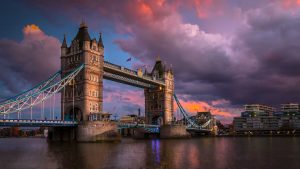London has long been known as a bustling metropolis, with a rich history and a thriving economy. However, the city has also been at the forefront of pioneering sustainable business practices in recent years, recognizing the importance of reducing its environmental impact while maintaining its position as a global business hub.
How London is Pioneering Sustainable Business

One of the most significant ways in which London is leading the way in sustainable business practices is through the promotion of renewable energy. The city has set a target of becoming carbon neutral by 2030, and it has already made significant progress towards this goal. For example, London has the largest installed solar capacity of any city in the UK, with over 3,000 solar panels installed on buildings across the city.
In addition to promoting renewable energy, London is also working to reduce waste and improve recycling rates. The city has implemented several initiatives to encourage residents and businesses to reduce their waste, including the introduction of a city-wide recycling scheme and the promotion of reusable products. London has also set a target of becoming a zero-waste city by 2050, which will require significant changes in the way that businesses operate.
Another way in which London is pioneering sustainable business practices is through the promotion of green transport. The city has made significant investments in public transport infrastructure, including the expansion of the London Underground and the introduction of a fleet of hybrid buses. London has also introduced a congestion charge, which has helped to reduce traffic and improve air quality in the city centre.
London is also working to promote sustainable business practices through its built environment. The city has set strict energy efficiency standards for new buildings, which has led to the development of a number of innovative green buildings. These buildings use a range of technologies, such as solar panels, rainwater harvesting systems and green roofs, to reduce their environmental impact.
Finally, London is promoting sustainable business practices through its support for green startups and SMEs. The city has a vibrant startup scene, with several profitable businesses focused on developing innovative solutions to environmental challenges. London has also established a range of support programmes and funding opportunities for green businesses, helping to encourage the growth of this important sector.
The London Climate Change Action Plan

The London Climate Change Action Plan (LCCAP) is a comprehensive strategy developed by the Mayor of London, Sadiq Khan, to help the city become a zero-carbon city by 2050. The LCCAP sets out a range of ambitious targets and measures designed to reduce greenhouse gas emissions and improve the city’s resilience to the impacts of climate change.
The Good Work Standard
The Good Work Standard is an initiative developed by the Mayor of London to promote better employment practices in the city. The initiative sets out a range of standards and best practices that businesses can adopt to improve the quality of work for their employees. It covers a range of areas, including pay and benefits, working conditions, and opportunities for training and development. To achieve the standard, businesses are required to meet a set of criteria across each of these areas, demonstrating their commitment to providing high-quality employment opportunities.
How to Implement Sustainability Into Your Business
1. Environmental audit
Start by assessing your business’s current environmental impact. Identify areas where you could reduce your energy or water usage, reduce waste, or use more sustainable materials. This will give you a baseline to work from and help you prioritize your sustainability efforts.
2. Develop a sustainability plan

Once you’ve identified areas for improvement, develop a plan to implement sustainable business practices. This could include setting targets for reducing renewable energy or water usage, introducing recycling programs, or using more sustainable materials in your products.
3. Engage your employees
Sustainable business practices require the buy-in and support of your employees. Educate your staff about your sustainability plan and encourage them to contribute ideas and suggestions for how to improve your business’s environmental performance.
4. Consider your supply chain

Look at your suppliers and consider whether they share your commitment to sustainability. Consider partnering with suppliers who have a strong environmental track record and can help you reduce your own environmental impact.
5. Monitor and report on your progress
Set up systems to monitor your progress towards your sustainability targets and report on your achievements. This will help you stay on track and demonstrate your commitment to sustainability to your customers, investors, and other stakeholders.
6. Attend seminars

Particularly in London, there are hundreds of seminars and events being held every year to promote and prepare for more sustainable business practices. So, book some accommodation near the Excel Centre in London and see what’s on the calendar.
7. Setting an example
London is setting an example for other major global cities to follow. As the city continues to implement these sustainable business practices, it will play an increasingly important role in the fight against climate change, while also helping to create a more prosperous and sustainable future for all.










Leave feedback about this